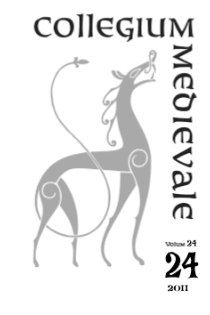Sammendrag
Old Norse literature, and indeed Old Norse culture, did not develop in a vacuum. This article discusses some possible points of influence from Roman classical sources both in Sverris saga and on King Sverrir himself. This influence may have come directly from Latin texts widely known in the Middle Ages, such as Sallust's historiographical works Bellum Iugurthinum and Bellum Catilinae, and Lucan's epos Pharsalia, or the mixed translation and paraphrase of these works into Old Norse called Rómverja saga, which was written shortly before abbot Karl Jónsson wrote the first part of Sverris saga. The main area of discussion is the emphasis on speeches in both Old Norse works, and the king's extensive use of rhetoric.- Furthermore, there is an episode in Sverris saga that shows clearly that the king was familiar with Lucan's Pharsalia. Lastly, there is the king's striking divergence from established military tactics in favour of more guerilla-like warfare, described by both Sallust in Bellum Iugurthinum and Julius Caesar in Commentarii de Bello Civili.
Forfattere beholder opphavsretten og gir tidsskriftet rett til første publisering av arbeidet. En Creative Commons-lisens (CC BY-SA 4.0) gir samtidig andre rett til å dele arbeidet med henvisning til arbeidets forfatter og at det først ble publisert i dette tidsskriftet.

